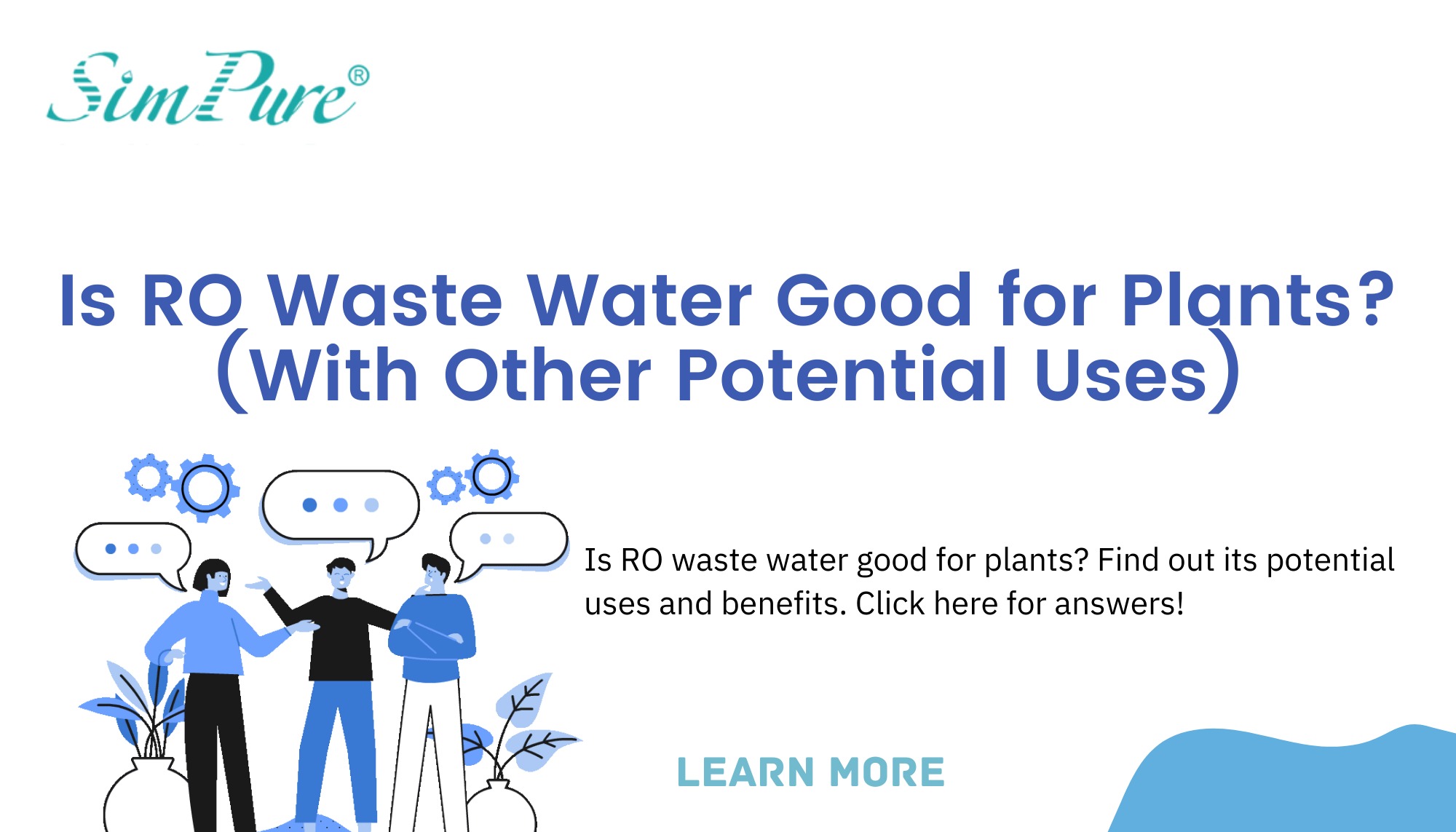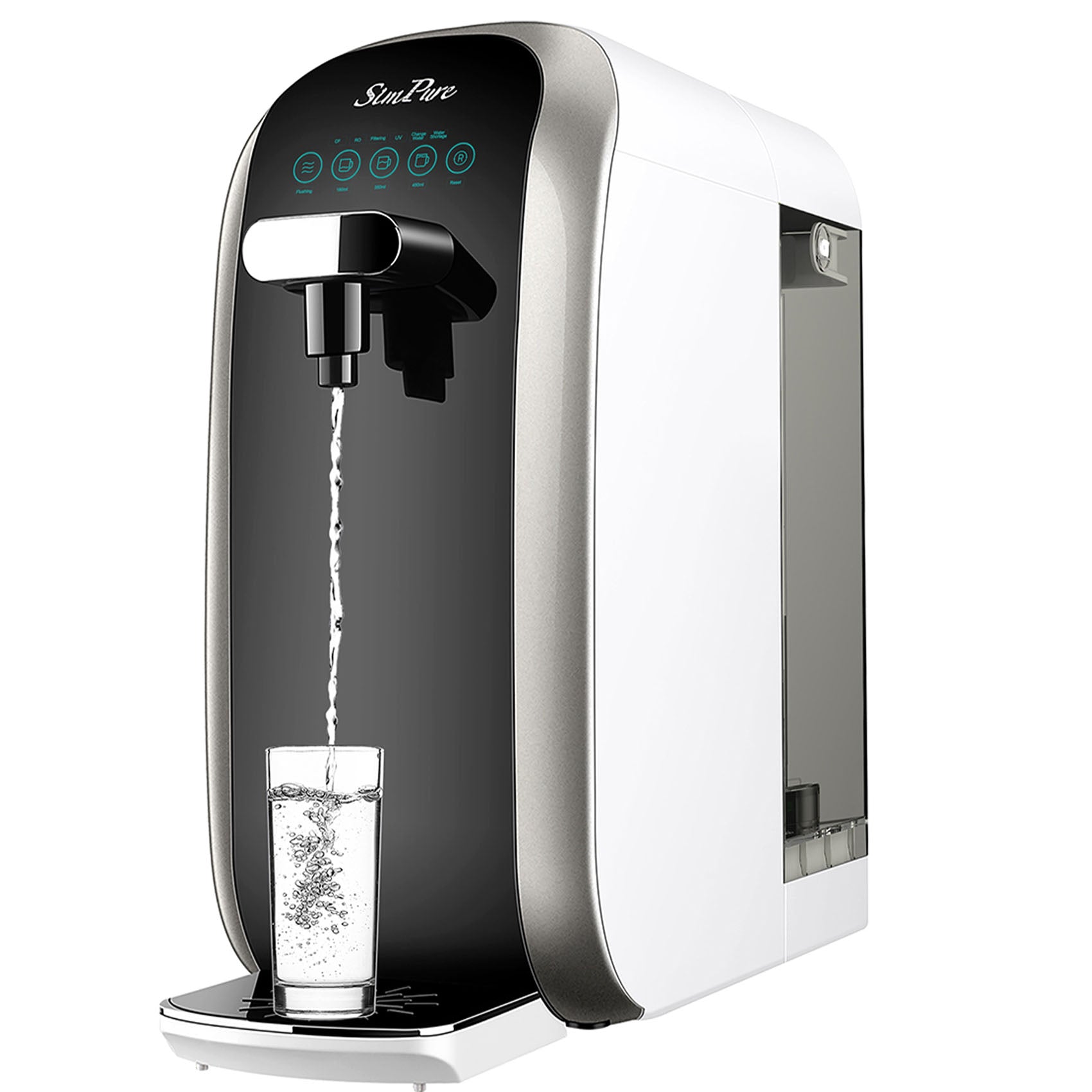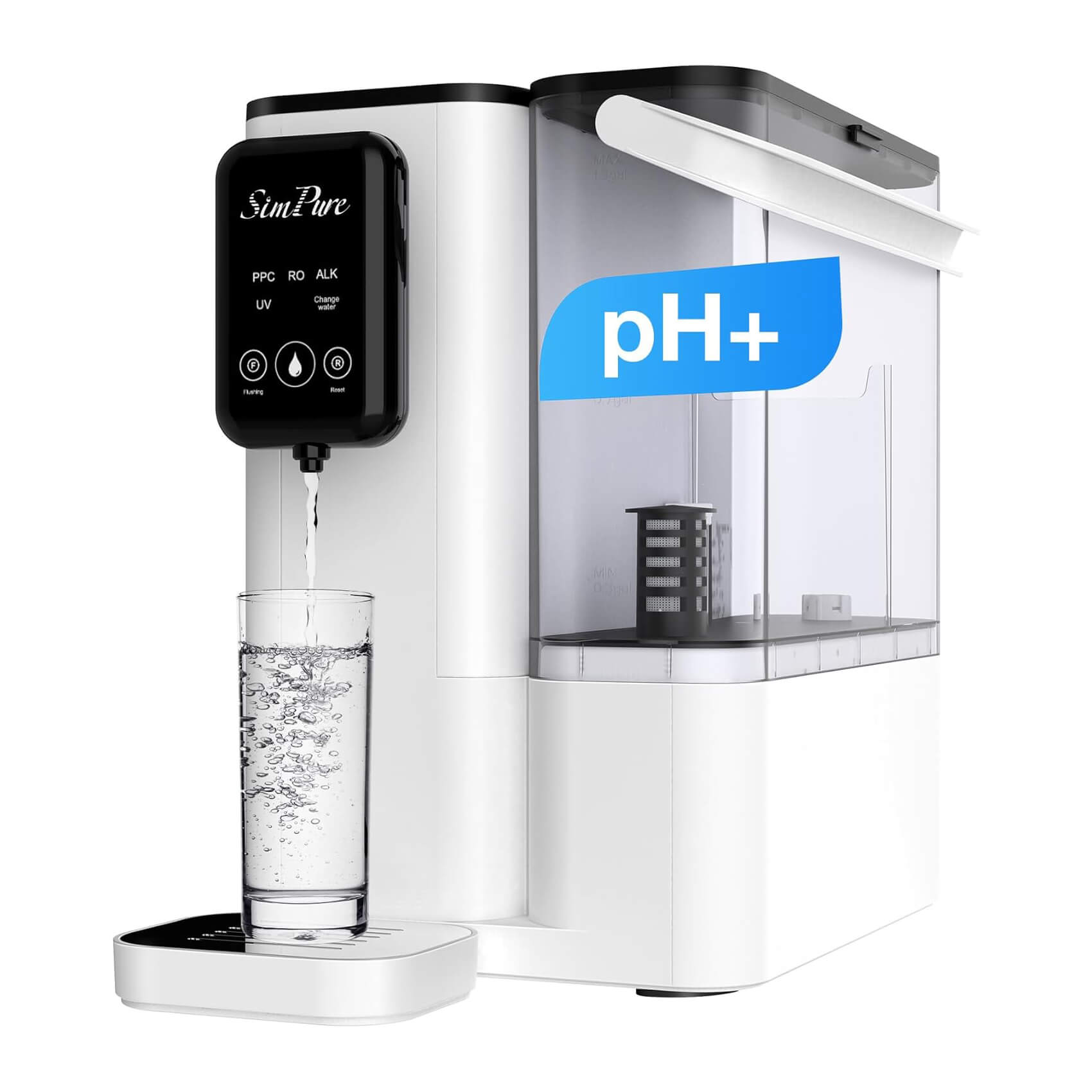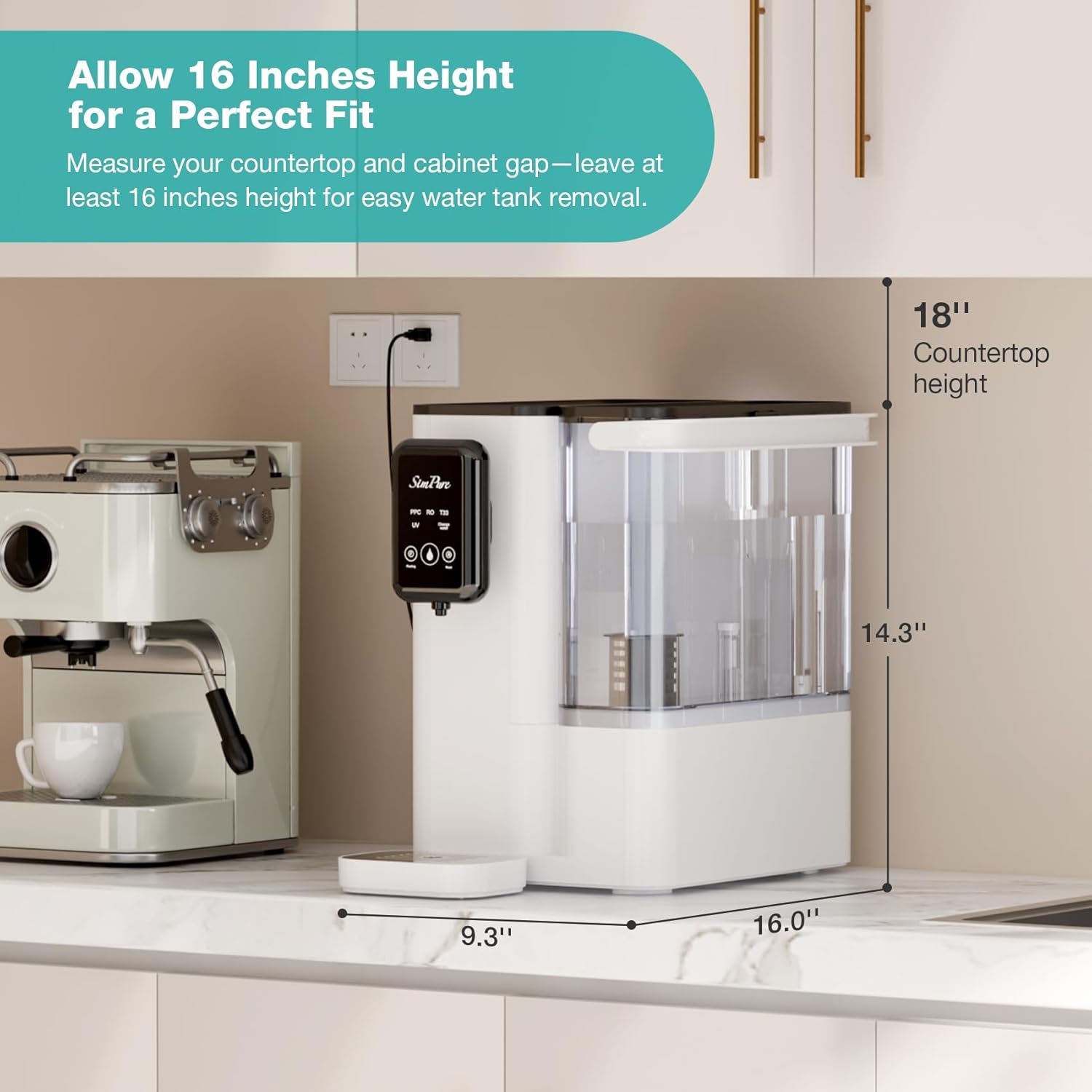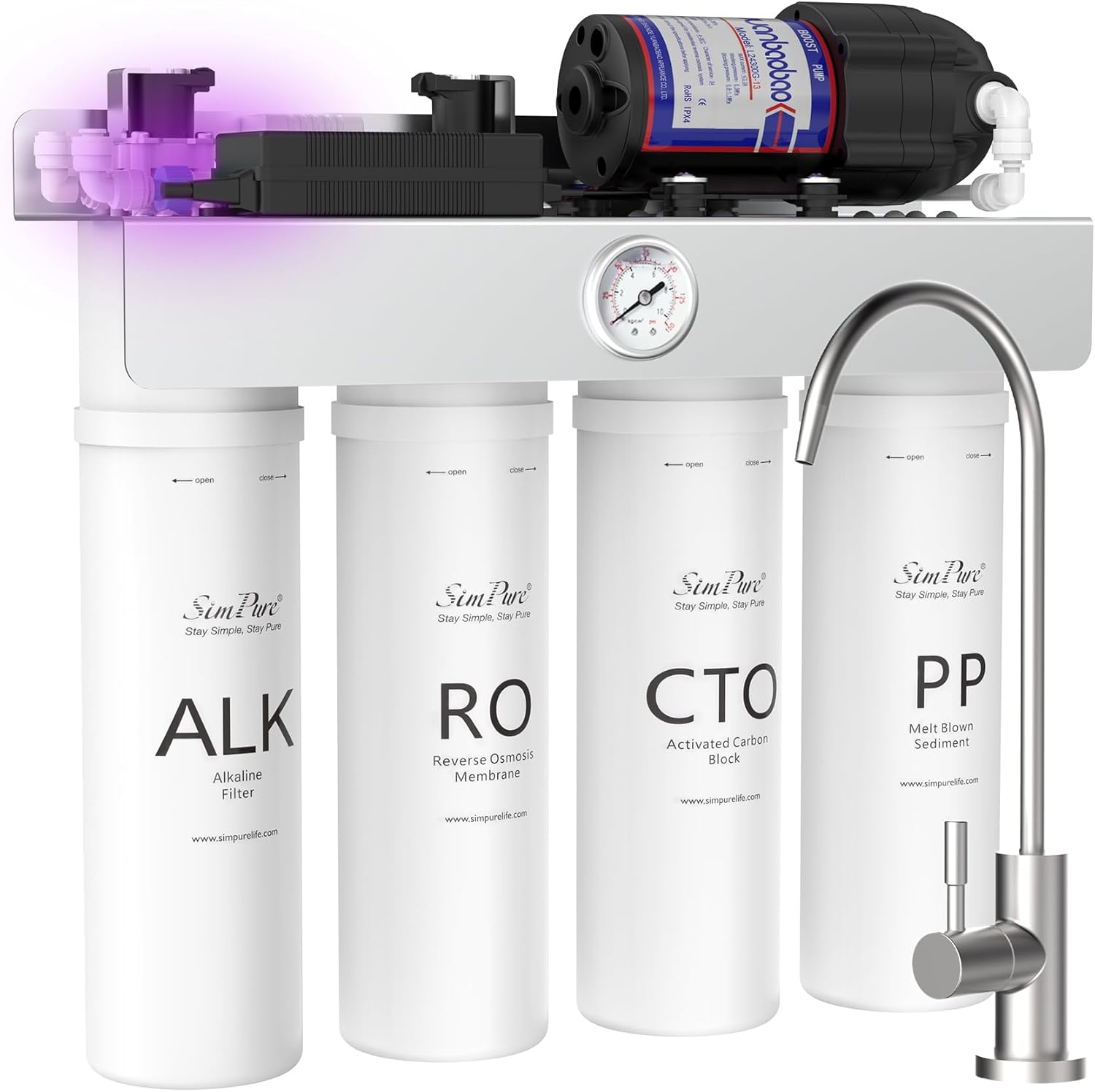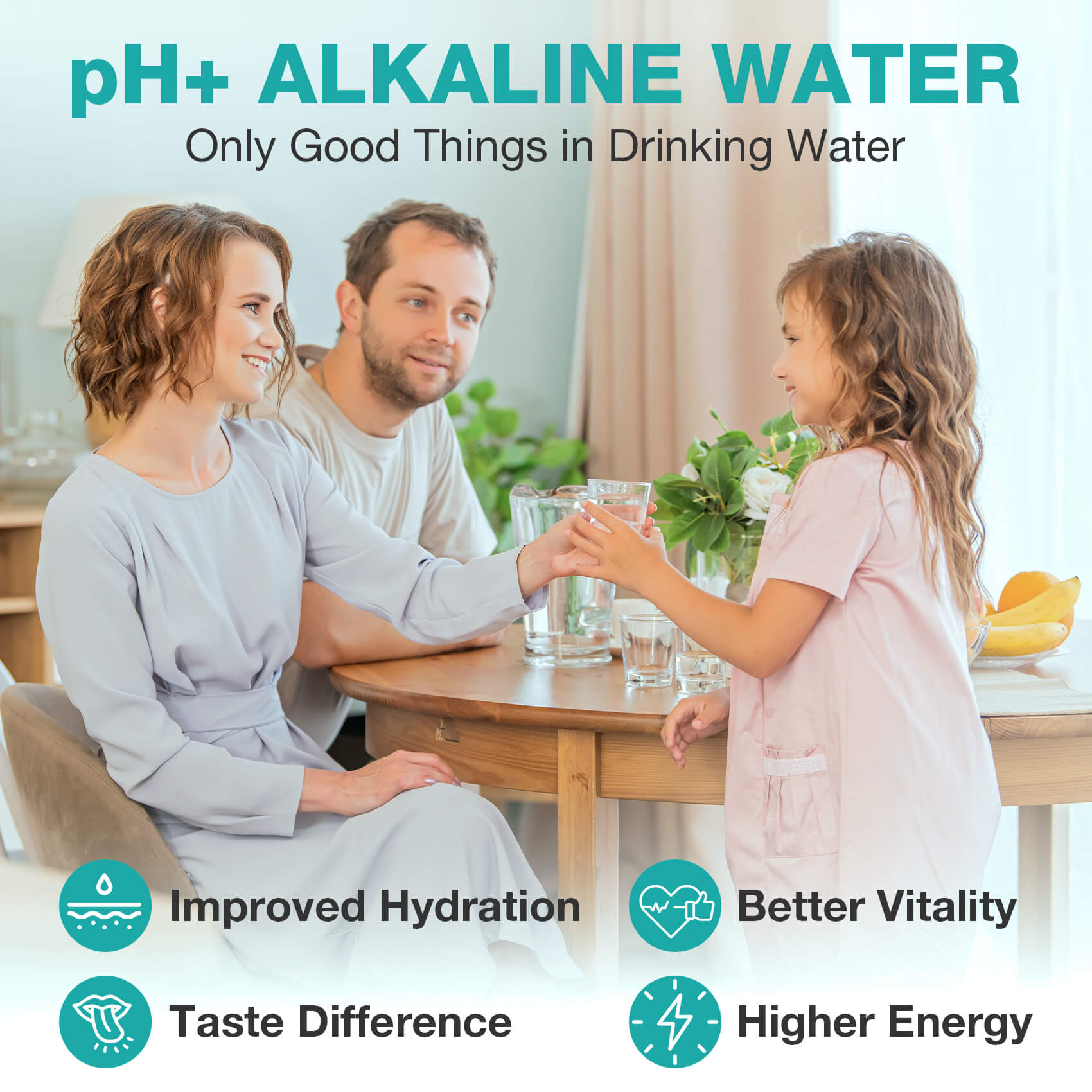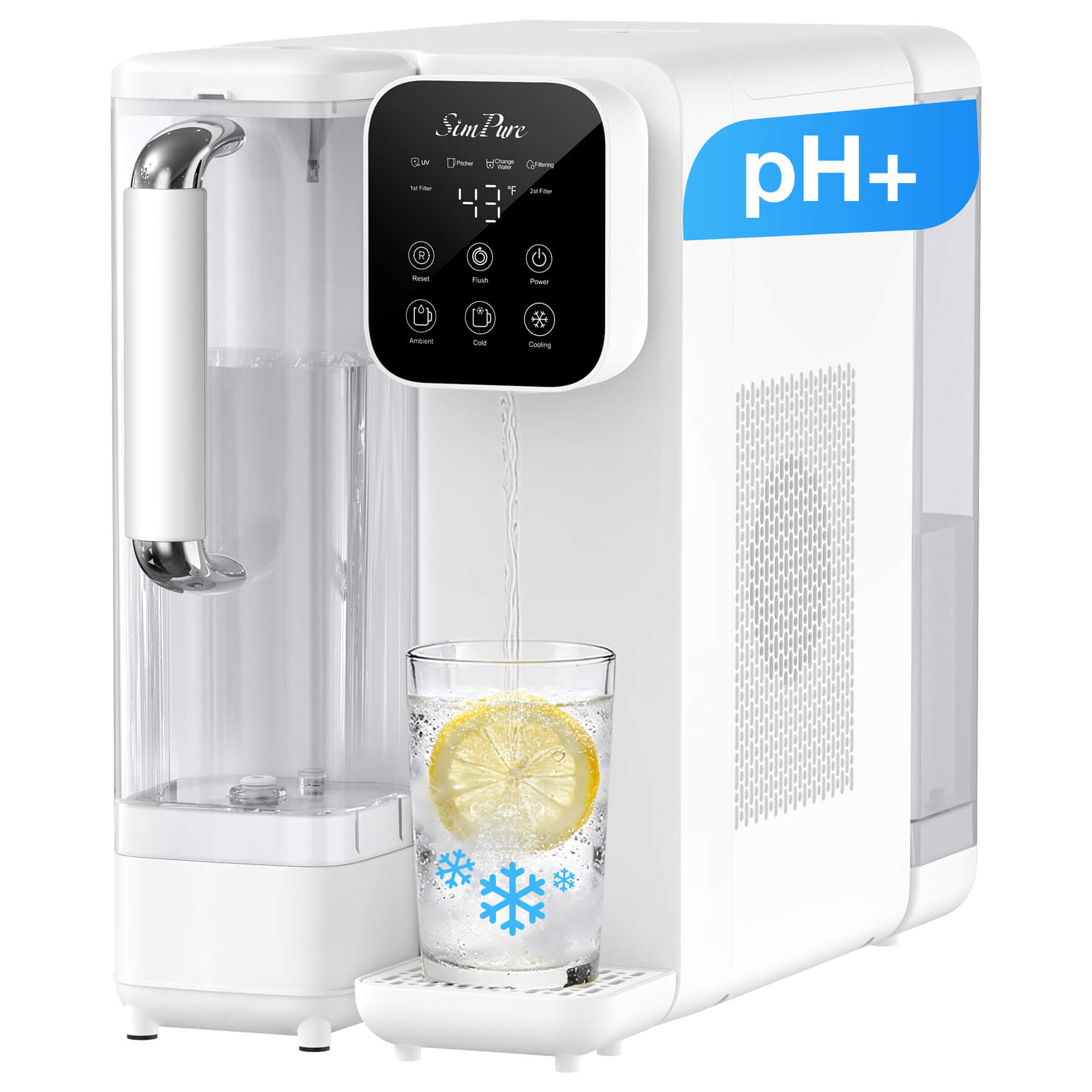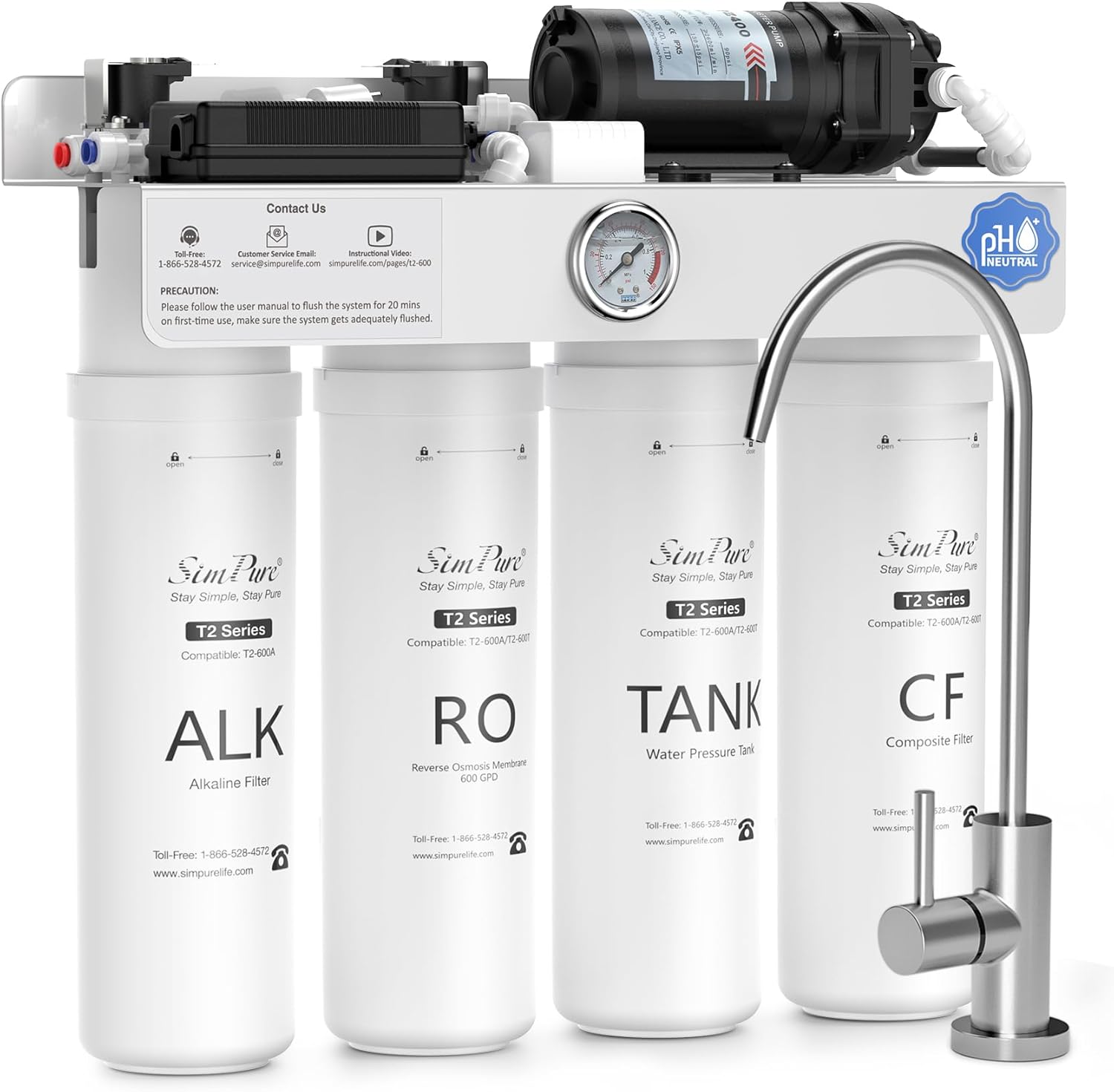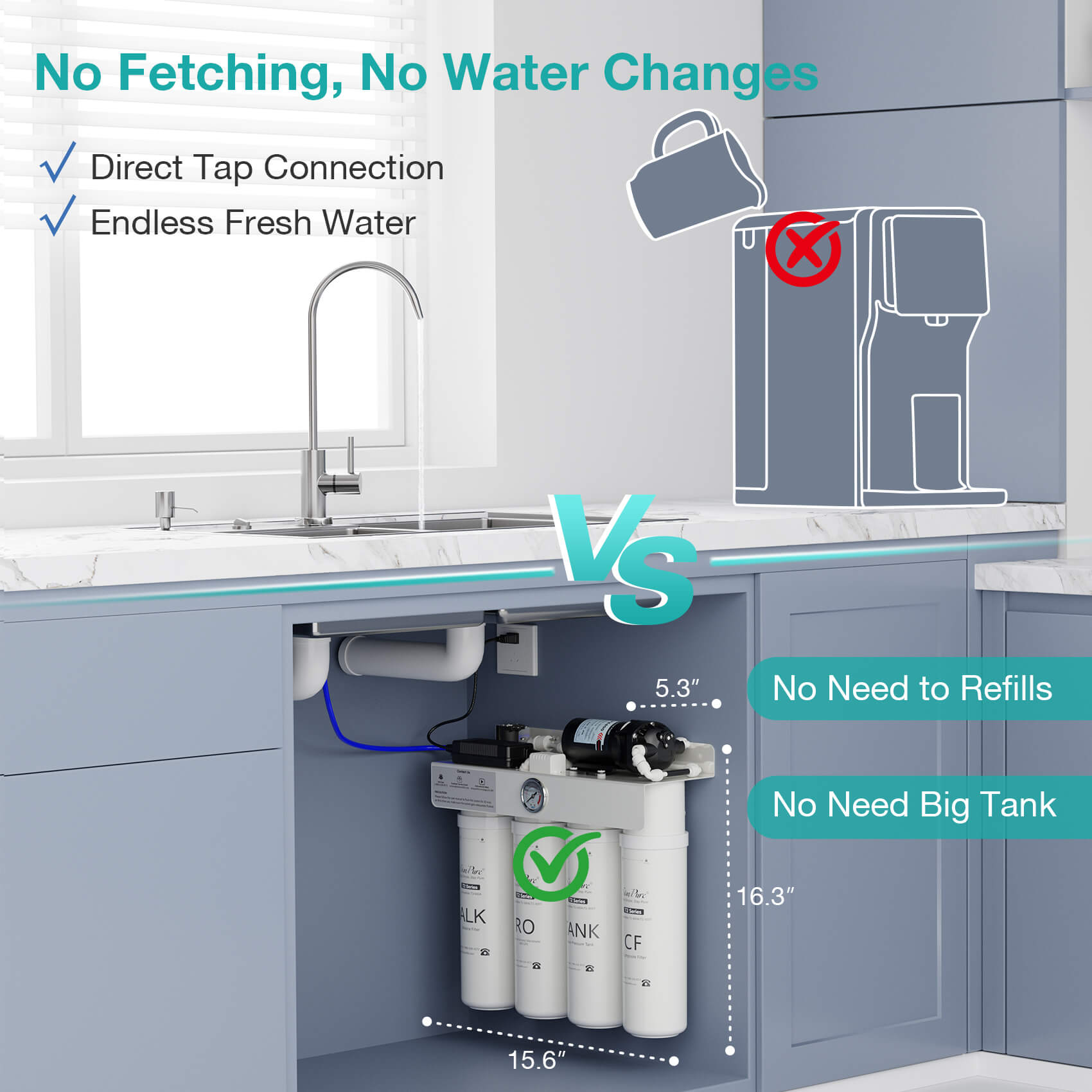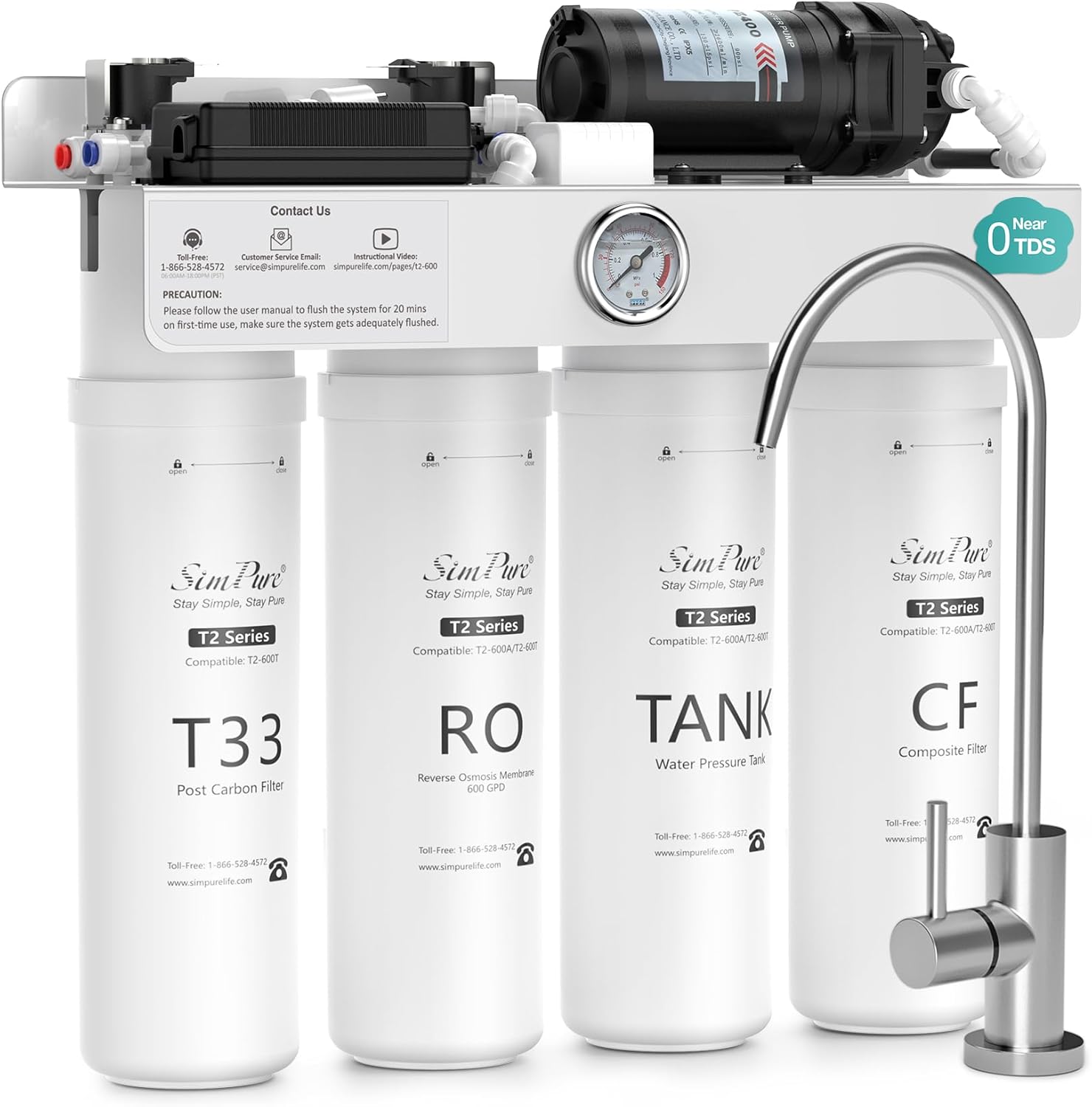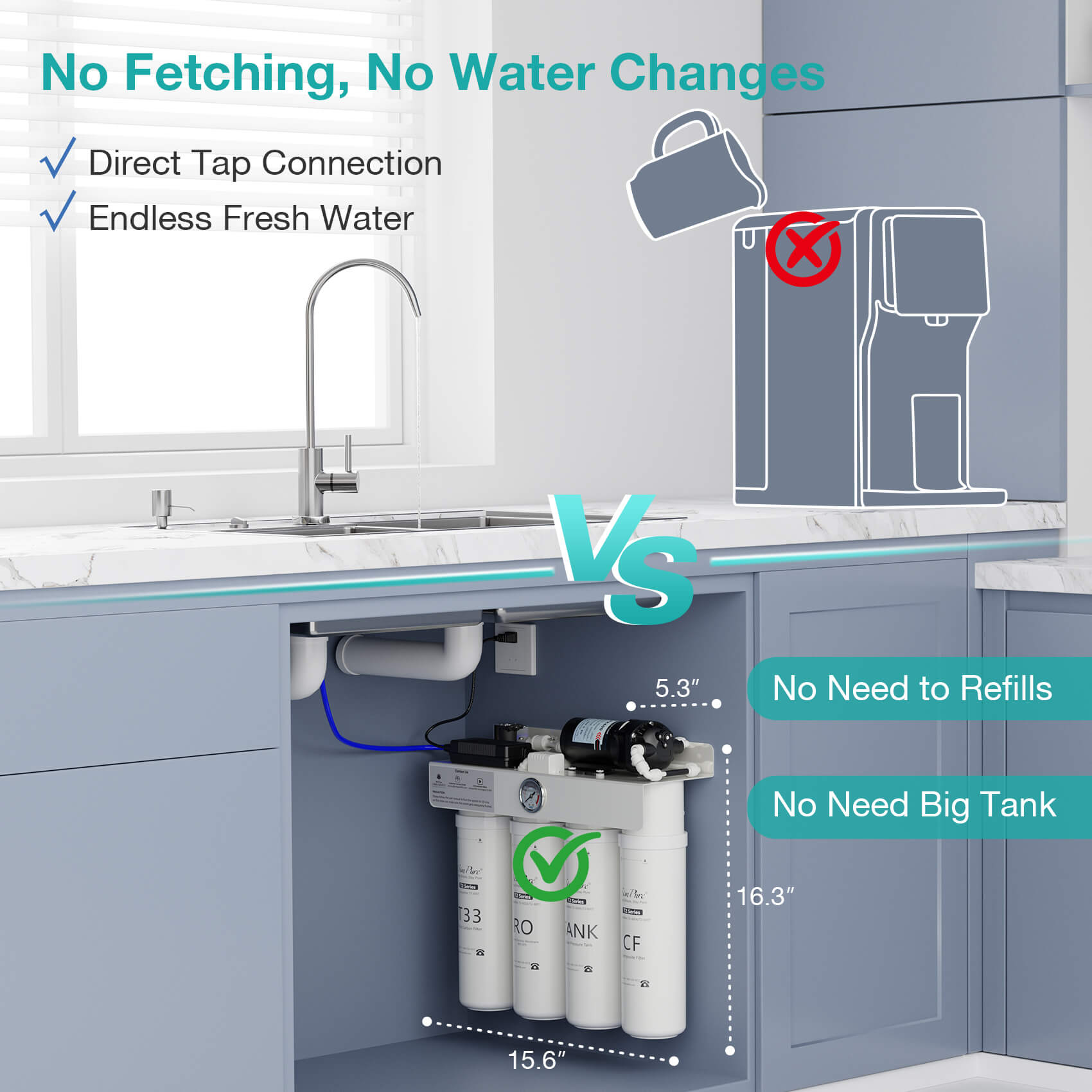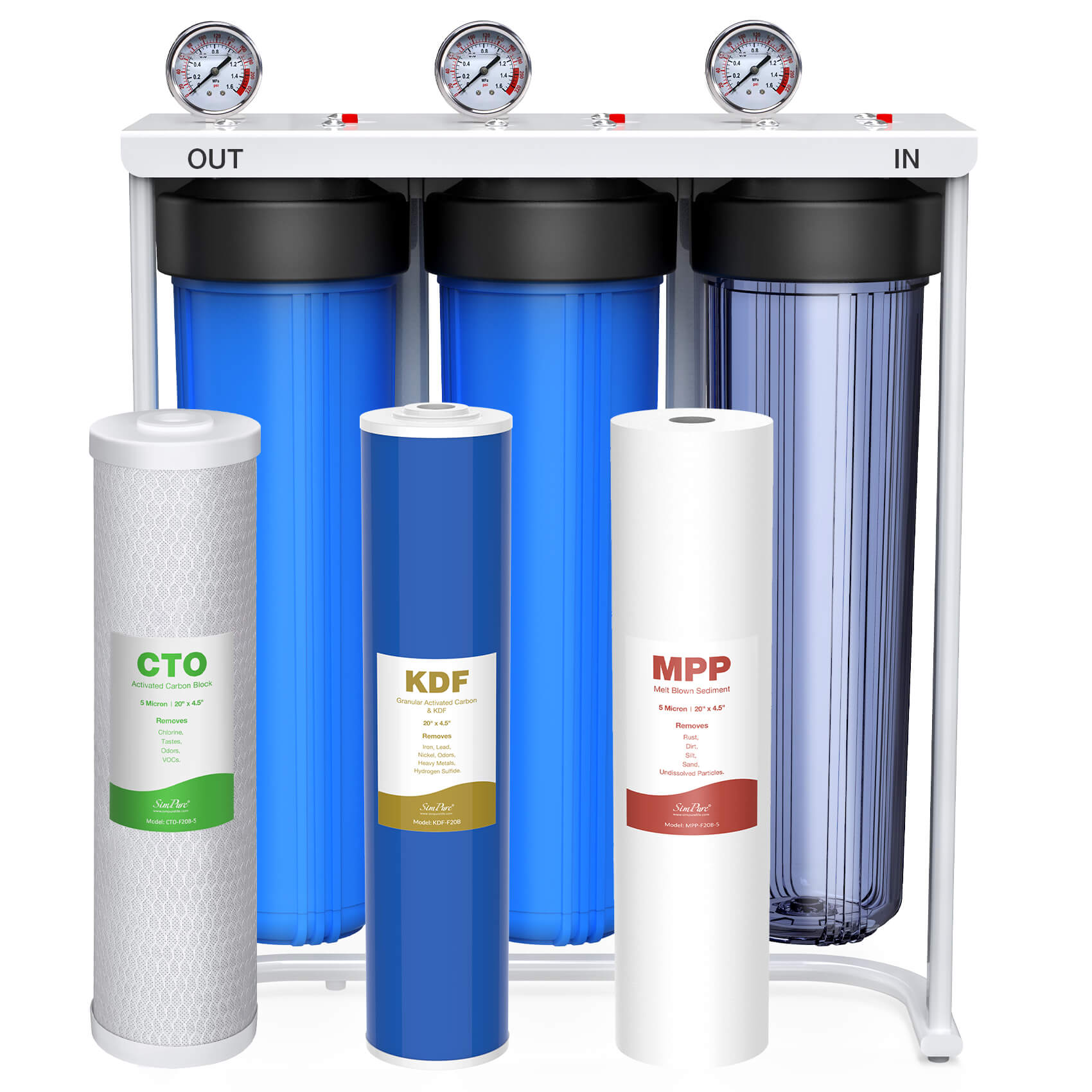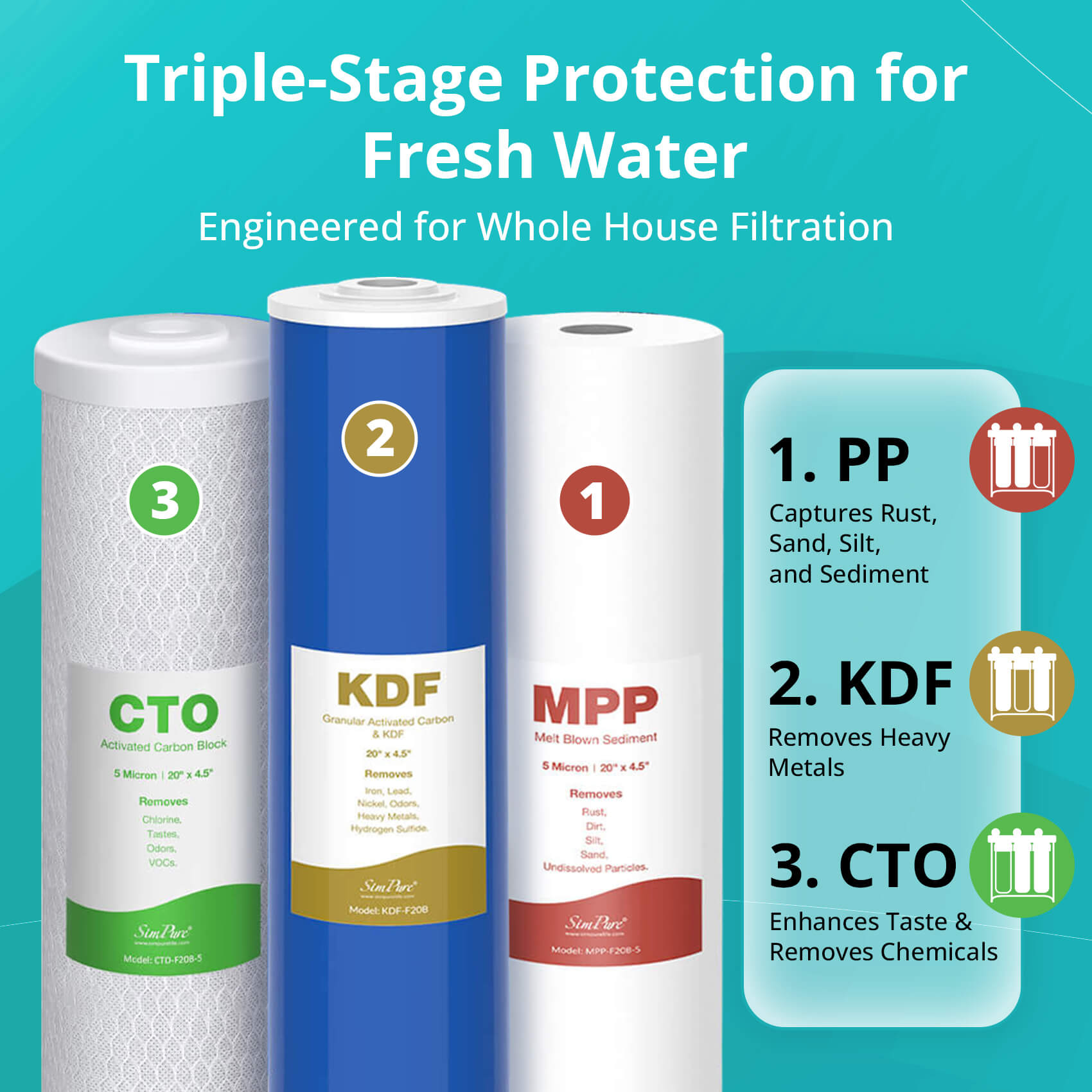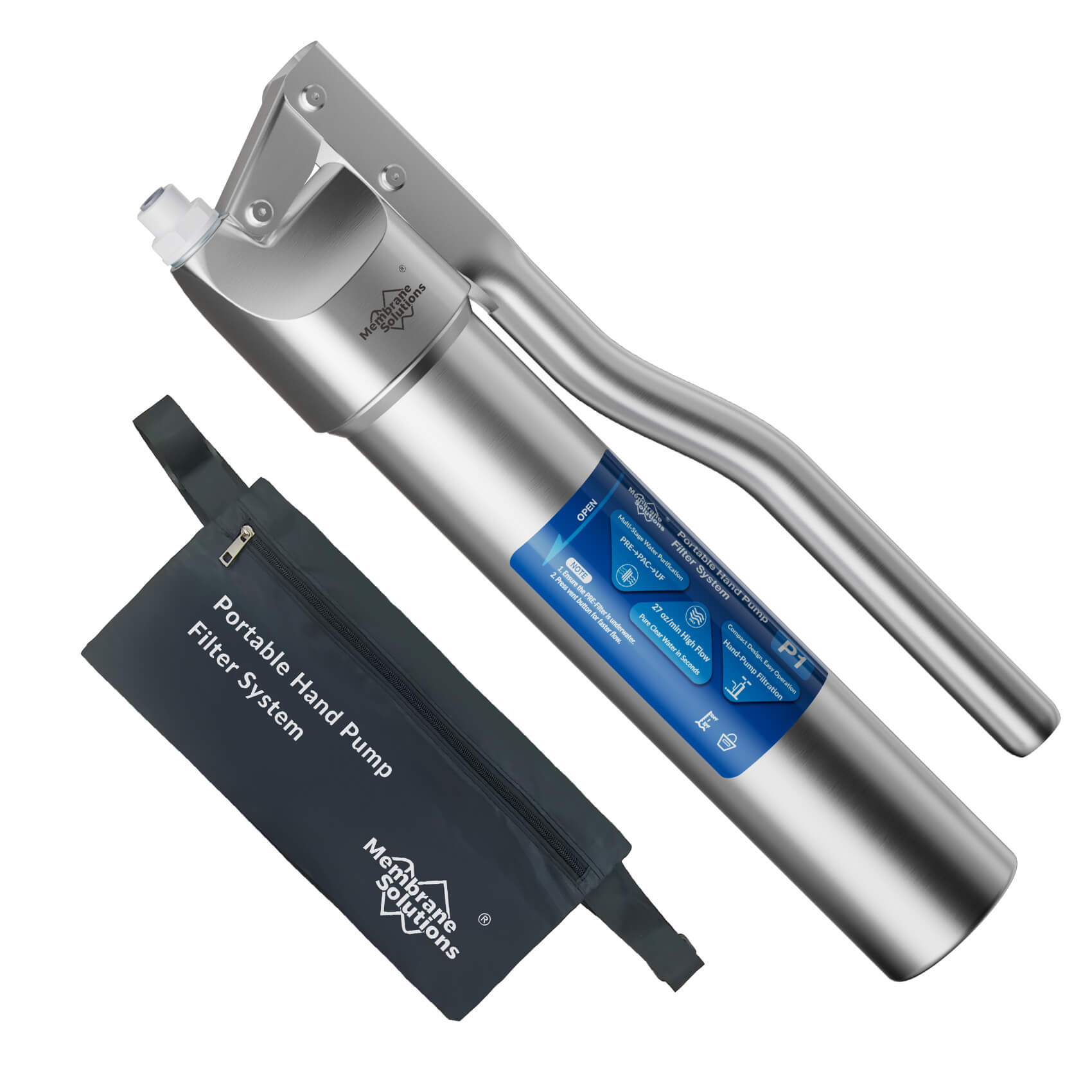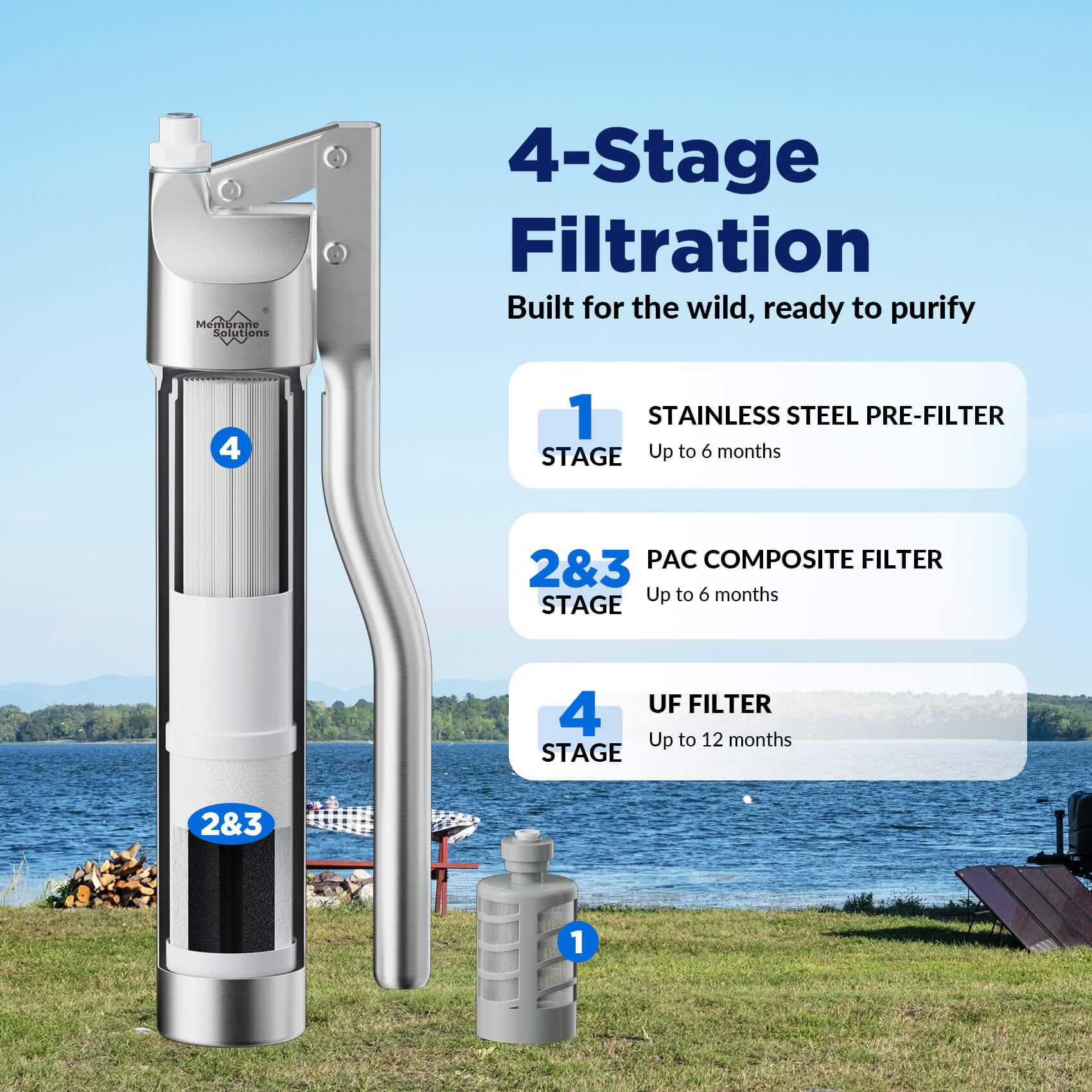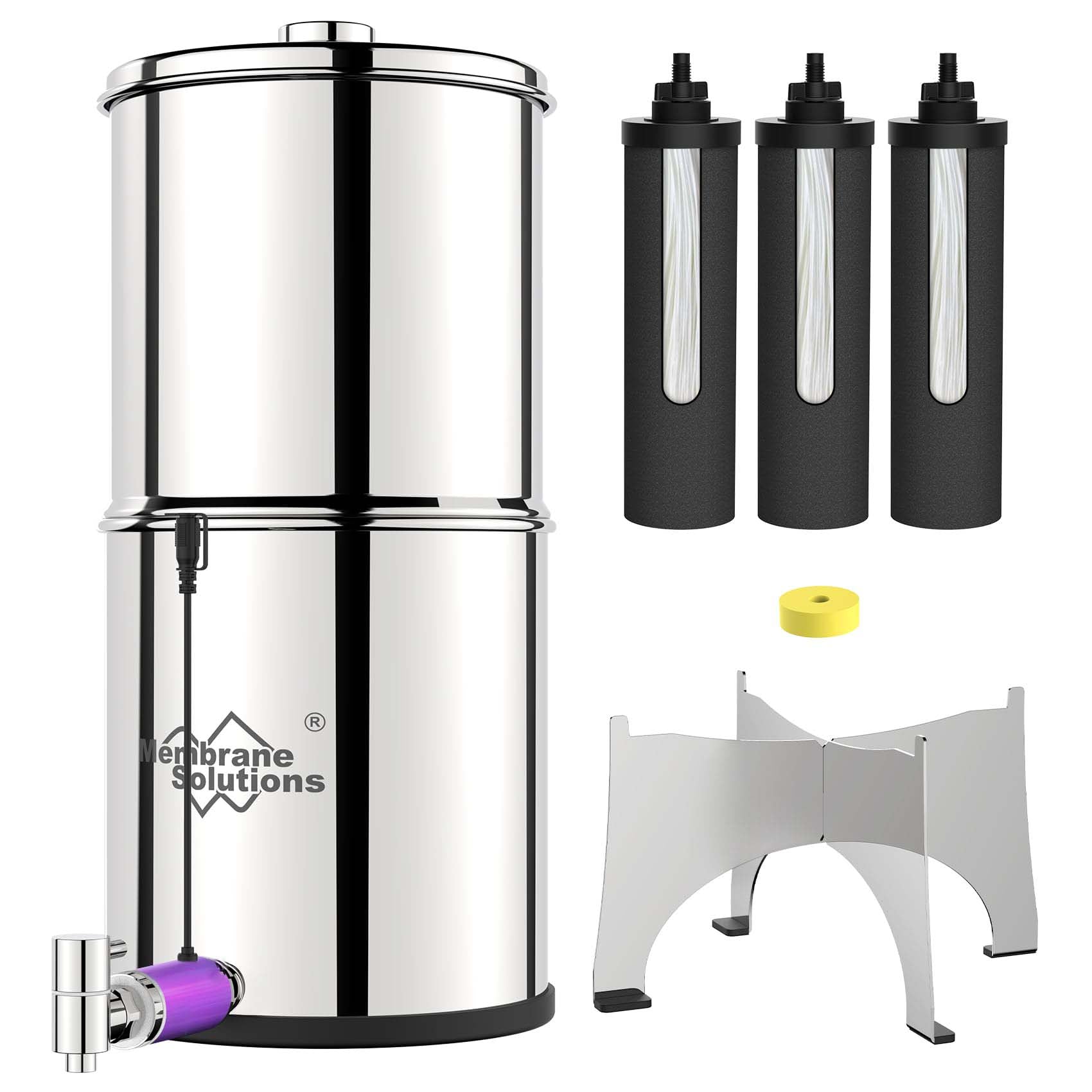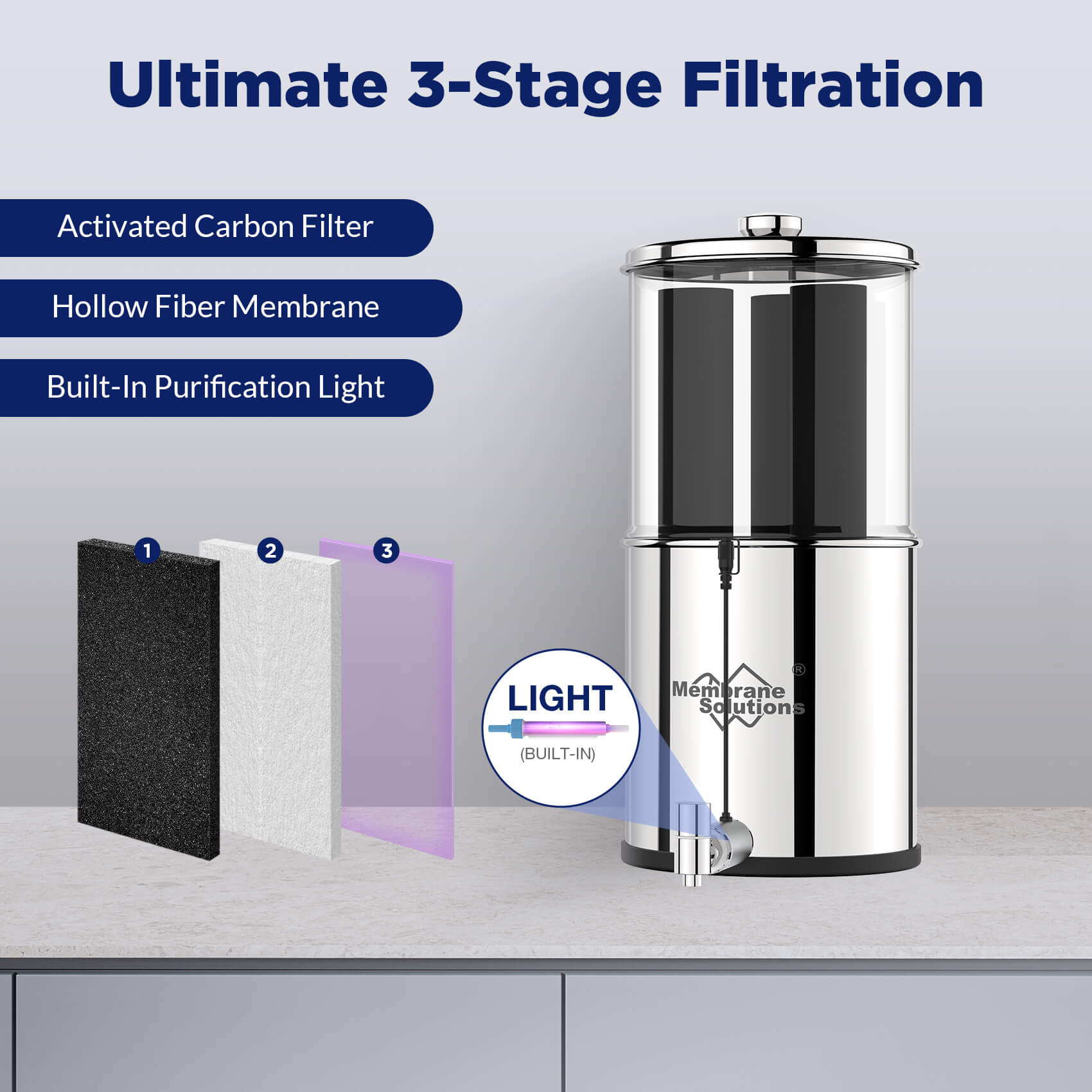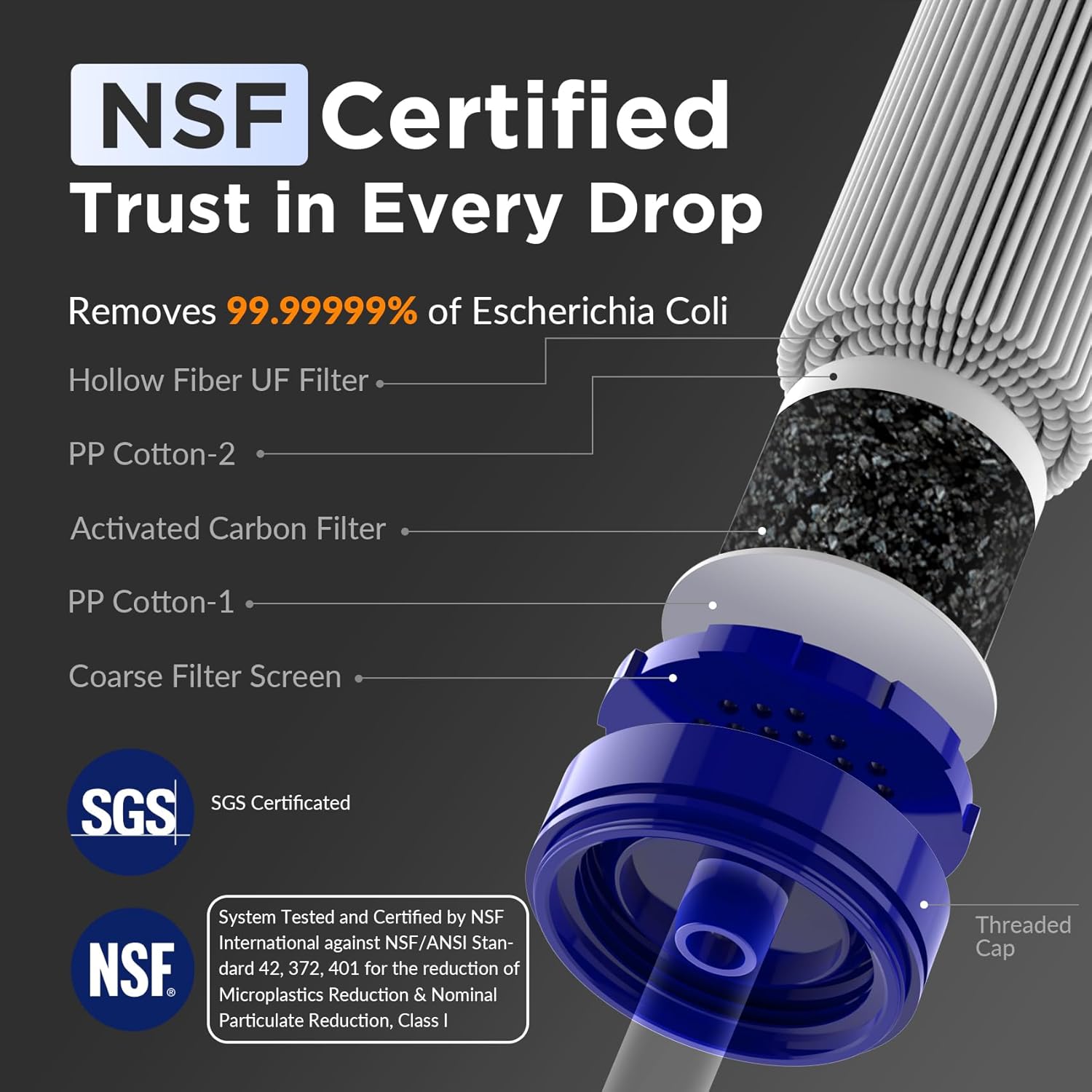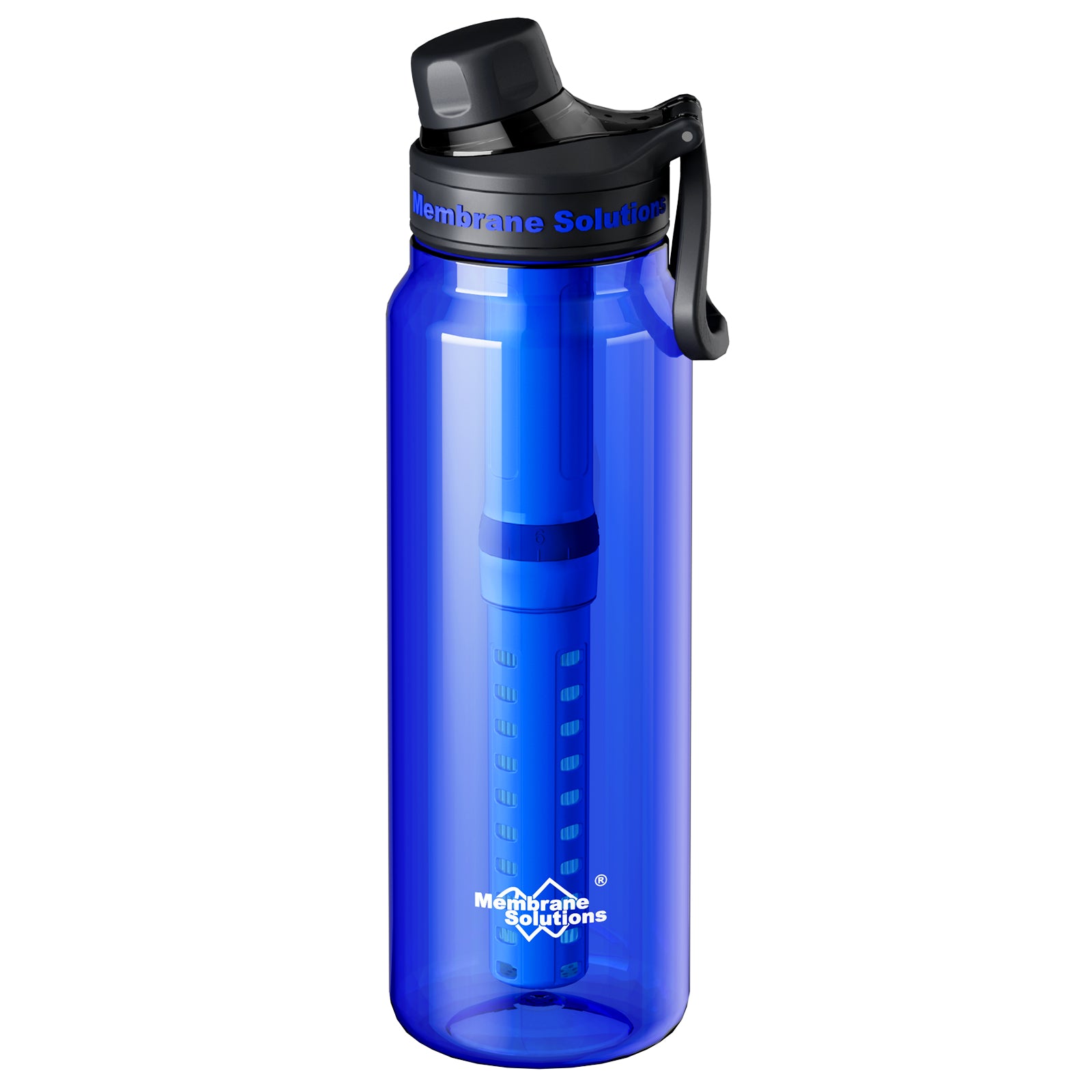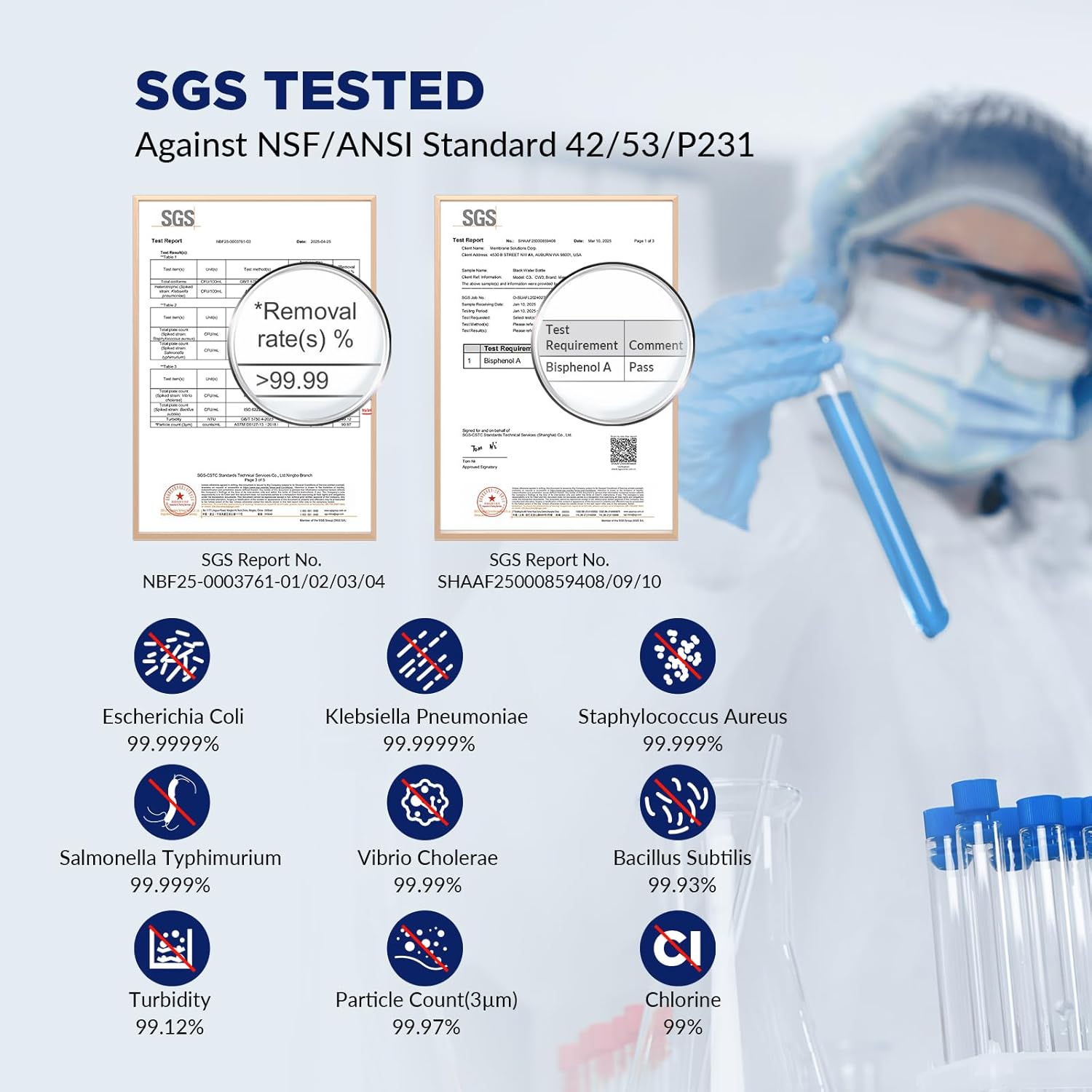If your family utilizes RO water purifiers, you'll notice the production of RO waste water. This may raise the question of whether this wastewater can be utilized instead of being flushed into the sewer. Actually, RO waste water can be used to water plants, provided that specific conditions are met. At this juncture, you may have concerns: Is RO waste water good for plants? In this article, we will provide detailed answers to this question, and we will also explore the positive and negative effects of RO wastewater on plants, as well as the factors you need to consider if you intend to use RO wastewater for plant irrigation.
Table of Contents
RO Waste Water and Its Composition
RO Waste Water Offers Multiple Benefits for Plants
- 1. Elimination of Harmful Residual Chlorine for Plants
- 2. Provision of Beneficial Minerals to Plants
- 3. Conservation of Water Resources
However, Reverse Osmosis Wastewater Can Also Harm Plants
RO Waste Water and Its Composition
RO wastewater refers to the by-product generated during the reverse osmosis (RO) process. The reverse osmosis membrane operates by concentrating liquids, leading to a continuous increase in salt content and osmotic pressure as tap water passes through it. Once the osmotic pressure increases to the pressure of the booster pump, water unable to traverse the reverse osmosis membrane becomes what we commonly call wastewater. To know more about wastewater produced by the reverse osmosis process, you can explore SimPure's blog titled "Why Does Reverse Osmosis RO System Waste So Much Water?"

The composition of RO wastewater varies depending on the source water's quality and the efficiency of the reverse osmosis system. Generally, RO wastewater contains a mixture of dissolved salts, minerals (such as calcium, magnesium, sodium, and potassium), trace elements, organic compounds, and potentially residual chemicals or pollutants. Therefore, due to the inherent nature of the reverse osmosis process, RO wastewater often exhibits elevated levels of total dissolved solids (TDS), which refers to the concentration of inorganic salts, minerals, and other dissolved substances in water.
RO Waste Water Offers Multiple Benefits for Plants
Of course, RO waste water is good for plants. These benefits are mainly reflected in three aspects, which are as follows:
1. Elimination of Harmful Residual Chlorine for Plants
The wastewater from the reverse osmosis water purifier is discharged to flush the RO membrane and prevent clogging. As a result, it undergoes filtration through multiple water filter elements before reaching the RO membrane. Consequently, RO wastewater does not contain large particles such as sediment, rust, jelly, or residual chlorine, which can be detrimental to flowers and plants. When we water plants with tap water, it is common practice to let tap water sit for a period of time before use. This allows the residual chlorine in tap water to fully volatilize, thus avoiding any direct harm from residual chlorine.
2. Provision of Beneficial Minerals to Plants
RO wastewater possesses higher mineral concentrations compared to tap water. During the reverse osmosis process, a significant amount of minerals remains in the wastewater. These minerals, along with other impurities, may contribute to the beneficial growth of plants. Therefore, watering your plants with RO wastewater has the potential to expedite plant growth.
3. Conservation of Water Resources
By utilizing RO wastewater for irrigation purposes, significant water conservation is achieved, making it an environmentally friendly choice. This practice not only helps conserve water resources but also presents a cost-effective solution. The use of RO wastewater for plant irrigation is an economically viable option for cultivating plants while promoting sustainable practices.

However, Reverse Osmosis Wastewater Can Also Harm Plants
While reverse osmosis wastewater can offer certain benefits to plants, it is crucial to consider specific factors to prevent any potential harm. The primary concern is the higher concentration of dissolved salts and minerals found in the wastewater. These minerals do contribute positively to plant growth within a reasonable concentration range. However, exceeding this range can result in adverse effects. Elevated levels of Total Dissolved Solids (TDS) in reverse osmosis wastewater can lead to salinity issues, causing a salt buildup in the soil. This buildup disrupts the water uptake by plant roots and has a negative impact on nutrient absorption. Therefore, it is vital to effectively manage and monitor the TDS levels of reverse osmosis wastewater in horticultural practices to avoid any potential damage to plants. Furthermore, it is important to consider the specific types of dissolved solids present, especially when growing vegetables. If toxic ions are present, they can be absorbed by the plants, highlighting the significance of careful consideration in vegetable cultivation.
Monitor TDS Level Before Using RO Wastewater for Gardening
Prior to using RO wastewater for plant irrigation, it is essential to assess its TDS level. You can easily monitor the TDS value of your RO wastewater by utilizing the SimPure Digital TDS Meter Water Tester. For most plants, you should have a TDS value of less than 1000 ppm. However, it is advisable to determine the specific TDS tolerance level for the particular plant or flower you intend to cultivate. By doing so, you can ensure that the TDS level falls within the appropriate range for optimal growth and health of your plants.
FAQs About Other Uses of RO Wastewater
1. Can We Use RO Waste Water for Bathing?
No, we do not recommend using RO wastewater for bathing. RO wastewater can potentially contain high levels of pollutants, including ions and impurities. Even though the concentration may be minimal, certain pollutants can have a high skin penetration rate, which is not beneficial for skin health. Additionally, RO wastewater often has high hardness levels, which can result in the formation of residue when heated, making it unsuitable for bathing purposes.
2. Can RO Waste Water Be Used for Cooking?
No, it is not recommended to use RO wastewater for cooking. As mentioned earlier, RO wastewater can potentially contain higher concentrations of hazardous substances. To ensure the safety and purity of the water used in cooking, it is advisable to opt for water from a trusted and reliable source, such as purified tap water or bottled water.
3. Can We Use RO Waste Water for Washing Clothes?
No, it is not recommended to use reverse osmosis wastewater for laundry purposes. Reverse osmosis wastewater can contain higher concentrations of trace dissolved salts, minerals, and other impurities that have the potential to impact the quality and cleanliness of the washed clothes. Moreover, the elevated Total Dissolved Solids (TDS) levels in reverse osmosis wastewater can lead to the deposition of minerals on fabrics, resulting in changes in the appearance and texture of garments.

It is worth mentioning that by installing a whole house water filter system you can ensure the availability of more suitable, safe, and healthy water for various purposes, such as kitchen use, bathing, and more. Whether it's for cooking, bathing, or any other water-related activity, the whole house water filter system offers a comprehensive solution to meet your water needs.
This article provides a comprehensive exploration of the potential use of RO wastewater for plant irrigation and addresses common queries regarding various scenarios of RO wastewater usage, such as bathing, cooking, and laundry. By sharing this blog, SimPure hopes to help you with valuable information to effectively utilize RO wastewater.

